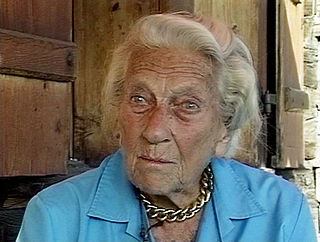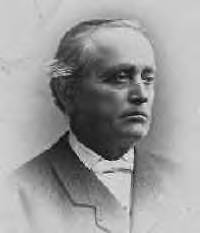A Quote by Annie Besant
Everyone knows the beautiful story of Abraham and the sacrifice of Isaac. How this noble father led his child to the slaughter; how Isaac meekly submitted; how the farce went on till the lad was bound and laid on the altar, and how God then stopped the murder, and blessed the intending murderer for his willingness to commit the crime.
Related Quotes
It was not to save a nation that Abraham went to sacrifice Isaac, nor to appease angry gods... Then why does Abraham do it? For God's sake... He does it for the sake of God because God demands proof of his faith... He was not justified by being virtuous, but by being an individual submitted to God in faith.
Why does anyone do anything? Belief. A belief that they are right and just in their actions. Abraham was willing to sacrifice his son, Isaac, because he believed that God had commanded it. To kill your son is unthinkable. A crime. But if you are acting in the belief that your God, your supreme deity whom you must obey, has demanded it of you, is it still a crime?
Many years ago, our father Ibrahim (AS) made a choice. He loved his son. But He loved God more. The commandment came to sacrifice his son. But it wasn't his son that was slaughtered. It was his attachment to anything that could compete with his love for God. So let us ask ourselves in these beautiful days of sacrifice, which attachments do we need to slaughter?
Artists like Otis Redding, Sam & Dave, Albert King, Ann Peebles, Isaac Hayes, and so many more gave me hope when I was an angst-filled teenager trying to make sense of it all... They were my teachers. Through their music, I learned how to live, how to be true to myself, and how to tell my story as a songwriter the way that I was feeling it.
If only mortals would learn how great it is to possess divine grace, how beautiful, how noble, how precious. How many riches it hides within itself, how many joys and delights! No one would complain about his cross or about troubles that may happen to him, if he would come to know the scales on which they are weighed when they are distributed to men.
If you want to judge how well a person understands Christianity, find out how much he makes of the thought of being God's child, and having God as his Father. If this is not the thought that prompts and controls his worship and prayers and his whole outlook on life, it means that he does not understand Christianity very well at all.
O how much mercy have I received the year past! How often has God caused his goodness to pass before me! And how poorly have I answered the vows I made this time twelve-month, to be wholly the Lord's, to be forever devoted to his service! The Lord help me to live more to his glory for the time to come. This has been a sweet, a happy day to me; blessed be God... I hardly ever so longed to live to God and to be altogether devoted to Him. I wanted to wear out my life in His service, and for His glory.
How easy is murder when one calls it by a different name? How much easier is it for the conscience to condone "reaping" than "killing"-and when one knows that death isn't the end, does it stop the killing hand for fear of retribution, or does it simply make it easier to kill, because, if life continues, how can murder be murder at all?








































